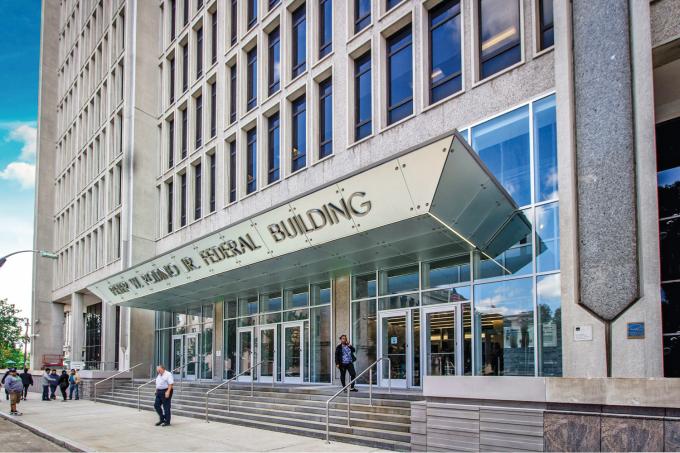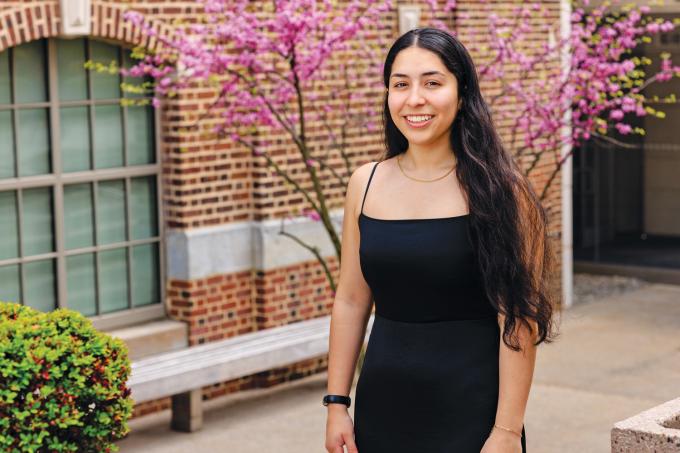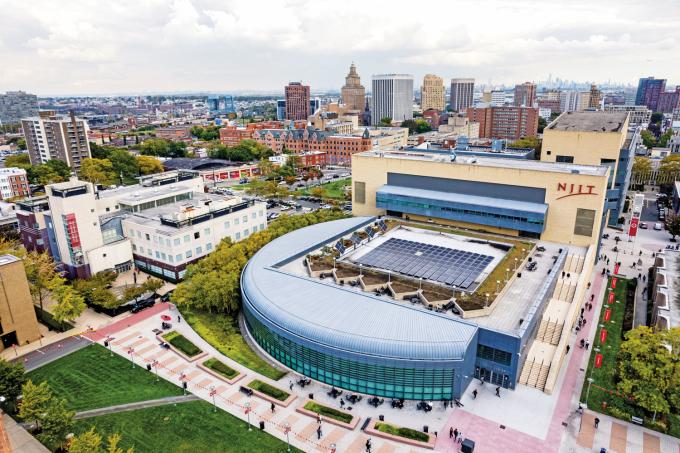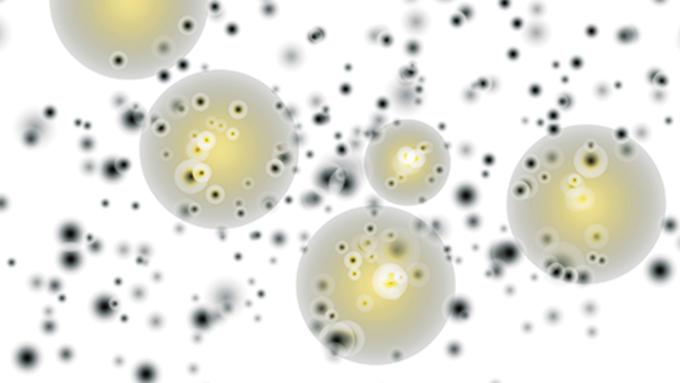Abstracts
Abstracts

NJIT Devotes Over $10 Million in New Funds for Push in Artificial Intelligence
NJIT is launching a $10+ million initiative to expand its leadership in artificial intelligence (AI) research and applications. This new effort will build upon the university’s strengths in machine learning, computer vision, natural language processing and robotics, with the goal of becoming a major player in AI innovation.
A key component is the establishment of the Grace Hopper AI Research Institute, supported by $6 million from a philanthropic gift and matching funds. Named for computer science pioneer Grace Hopper, the institute will encompass existing initiatives, like the Center for AI Research and the Institute for Data Science. AI will be applied across diverse fields, including architecture, biology, engineering and management, ensuring broad benefits. The institute also will partner with health care, defense, finance and manufacturing industries through the New Jersey Innovation Institute to develop AI solutions.
NJIT will invest an additional $4+ million to attract top AI talent and create a Center for Educational Innovation Excellence. This center will focus on how AI can enhance curricula and improve teaching.
“Generative AI is creating new opportunities for innovation and knowledge creation,” said NJIT President Teik C. Lim. “AI is arguably going to have the greatest effect on the creation and delivery of knowledge goods and services since the advent of the Internet and the smartphone. NJIT will focus its research enterprise on collaborative, large-scale, applied projects in areas of high impact.”
Photo: Google Image of Grace Hopper, augmented

Helping Newark Manage Heat, Stormwater
The Hillier College of Architecture and Design continues to help the Newark community with projects that will transform the city’s public spaces.
Up next: the city will use $3.6 million in Inflation Reduction Act funds for stormwater management, tree planting and building resilience and adaptation updates around the Peter W. Rodino, Jr. Federal Office Building, which houses the United States Attorney’s Office for New Jersey, a field office of the U.S. Immigration and Customs Enforcement and other federal offices.
This project is among 13 at federal buildings across 10 states through the Good Neighbor Program at the U.S. General Services Administration (GSA).
“In 2021, when the GSA reached out to NJIT to ask if we would like to collaborate and create a class focused on improving the federal campus here in Newark, I jumped at the opportunity,” said Professor Georgeen Theodore. “Working together with GSA Regional Chief Architect David Polk, Community Planner Ruth Kroeger and others, we developed what we would call a studio, in which students would work directly with the GSA and the city to envision this area as a new green district.”
In the course of a semester, the studio developed a design that introduces a network of public spaces and paths that cool and clean the air with trees and planting — reducing the heat island effect — and helps manage stormwater. Another design element: furnishings and art to make the area more comfortable and inviting.
Photo: Archello/Edgar de la Cova

New Leaders for Computing, Architecture Colleges
NJIT named new deans for its Ying Wu College of Computing (YWCC) and Hillier College of Architecture and Design (HCAD).
The YWCC dean is Jamie Payton, who previously served as professor and chair of the Department of Computer and Information Sciences at Temple University, and the HCAD dean is Gabrielle Esperdy, a longtime NJIT professor who had served two years as interim dean.
YWCC is the largest college at NJIT and a key element in its drive to become a nexus of innovation. Its three departments, Computer Science, Data Science and Informatics, prepare students to enter burgeoning fields such as software engineering, cybersecurity, information technology and artificial intelligence.
“I’m excited about leading the Ying Wu College of Computing into its next chapter, building on its strengths and prior successes, and bringing a fresh perspective and experience in fostering diversity, equity and inclusion in computing,” said Payton.
 HCAD, which offers 11 degrees across two schools, is known for tackling challenges in the real world, particularly in NJIT’s home city of Newark. With Esperdy as dean, the college is expected to enhance student success through experiential learning, community engagement and incorporating resources from industry into the curricula.
HCAD, which offers 11 degrees across two schools, is known for tackling challenges in the real world, particularly in NJIT’s home city of Newark. With Esperdy as dean, the college is expected to enhance student success through experiential learning, community engagement and incorporating resources from industry into the curricula.
“Sometimes a search affirms what you already have, in this case, a thoughtful and passionate leader who connects well with students, faculty, administrators and staff members alike,” NJIT President Teik C. Lim said. “Also, we gain continuity and someone who already understands Hillier and its long-term priorities. This is a
win-win.”
Photos:
Left: Jamie Payton
Right: Gabrielle Esperdy

Biomedical Engineering Majors Named Goldwater Scholars
NJIT undergraduates Danna Valentina Sanchez Hernandez and Owen West were named Goldwater Scholars this year by the Barry Goldwater Scholarship and Excellence in Education Foundation.
The scholarship is among the country’s most prestigious for STEM undergrads pursuing research careers. This is the sixth consecutive year that NJIT students have earned the prize.
Sanchez Hernandez, who’s majoring in biomedical engineering, has undertaken four research projects, each one building the skills and experience she’ll need to become a biological researcher. Her current research, in Associate Professor Brooke Flammang’s Fluid Locomotion Laboratory, focuses on developing non-invasive attachments for sensors that track marine life. She has already been accepted into NJIT’s B.S./Ph.D. program.
 West, an Albert Dorman Honors Scholar who’s also a biomedical engineering major, has conducted research with Associate Professor Vivek Kumar, primarily focusing on improving efficiency and reducing the time needed to develop new drug treatments. He plans to pursue a Ph.D. focusing on structural biology.
West, an Albert Dorman Honors Scholar who’s also a biomedical engineering major, has conducted research with Associate Professor Vivek Kumar, primarily focusing on improving efficiency and reducing the time needed to develop new drug treatments. He plans to pursue a Ph.D. focusing on structural biology.
“NJIT’s success this year — along with its consistent achievements in previous years — underscores the caliber of our undergraduate research students, showcasing that they are among the most elite students across the country,” said John Carpinelli, a professor of electrical and computing engineering and campus representative for the Goldwater Scholarship Foundation.
Photos:
Left: Danna Valentina Sanchez Hernandez
Right: Owen West

NJIT Shines in National Rankings
By many measures, 2024 was a banner year for NJIT.
In Money’s annual best colleges list, NJIT was the only public university in New Jersey (and one of just 54 universities nationally) to receive a five-star rating. With five stars, NJIT tied Princeton University as the highest-rated university in N.J. and ranked with similar STEM schools like MIT, Georgia Institute of Technology and California Institute of Technology in this elite category.
Also, NJIT rose to No. 84 in U.S. News & World Report’s national list of Best Colleges. That ranking is up
19 spots since 2022.
Finally, for the 33rd straight year, NJIT is featured in The Princeton Review’s annual guide to the best universities and colleges in the U.S. Just 15% of the nation’s four-year institutions made The Best 390 Colleges for 2025, which is based on surveys of 168,000 students.
The recognition came two months after NJIT ranked No. 23 nationally among public schools on the review’s list of the Top 50 Best Value Colleges — up 12 places from last year.

Can Spores Inspire New Materials for Machines?
Bacterial spores are among nature’s most adept survivors. Subject to extreme environments — blazing and freezing temperatures, drought and even the vacuum of space — they coat themselves in a thick husk and lie dormant until conditions improve.
In studying how these single-cell organisms respond to an environmental change — an uptick in humidity — Gennady Gor, an associate professor of chemical and materials engineering, noticed anomalous behaviors.
“They swell significantly and quickly. One of their amazing properties is just how fast they respond, faster even than hydrogels. They also retract quickly when humidity declines,” he said. “This is not typical of most materials. I believe it’s related to their mechanisms for survival.”
Their outer structure, which is composed of peptidoglycan, a polysaccharide, behaves like rubber with respect to its swelling, elasticity and relaxation times, Gor added. Also, the structure of hydrogels and peptidoglycan is similar in that both are composed of cross-linked molecular chains. With collaborators at Princeton University, Gor published these findings in Proceedings of the National Academy of Sciences.
From a materials science perspective, understanding the physical properties of spores may help create nature-inspired materials with similar characteristics. For example, because their response to humidity is fast and reversible, the materials that comprise spores may hold promise for creating new actuators, which convert energy into mechanical forces such as movement and are used in machines.
Photo: iStock